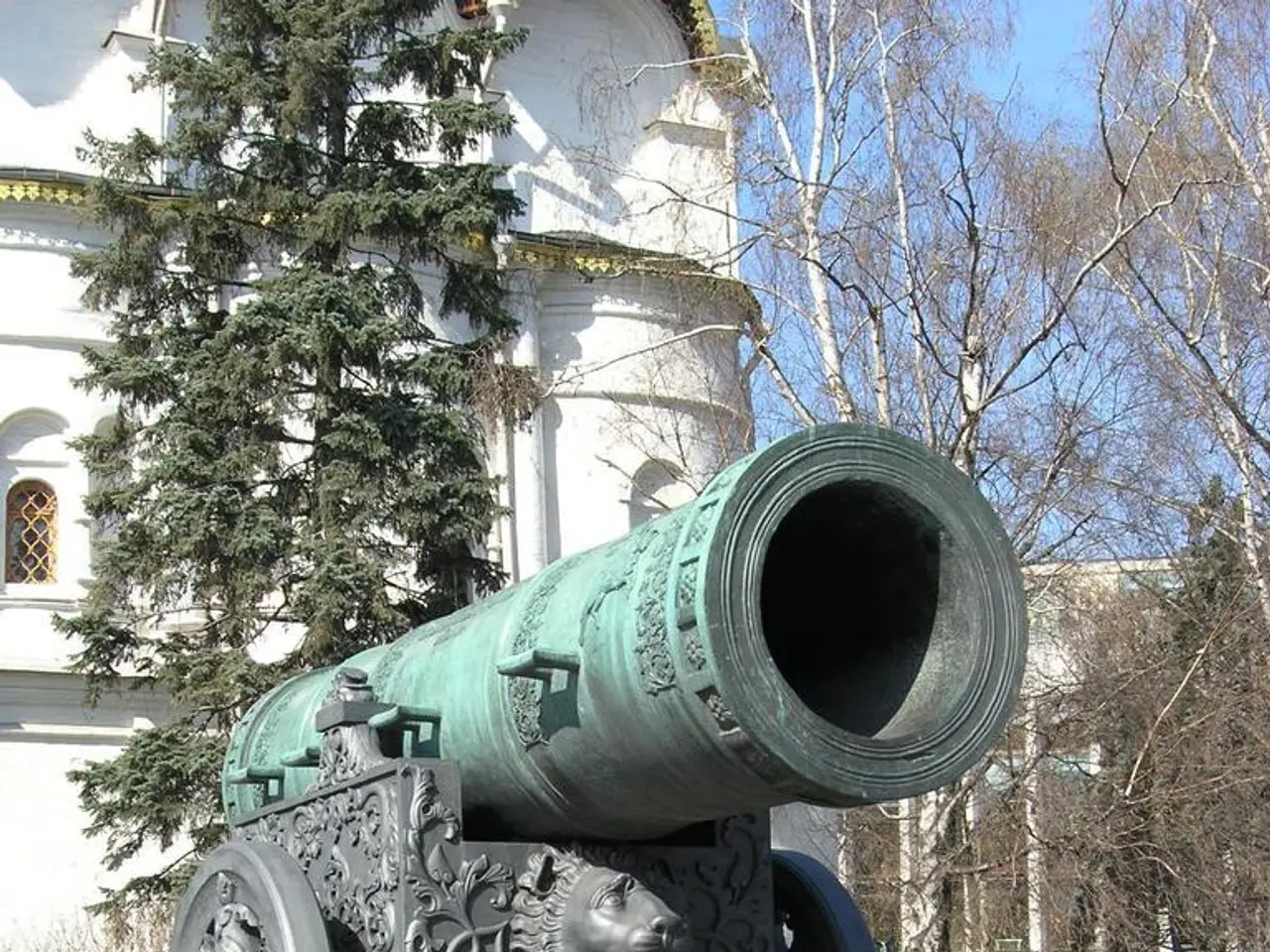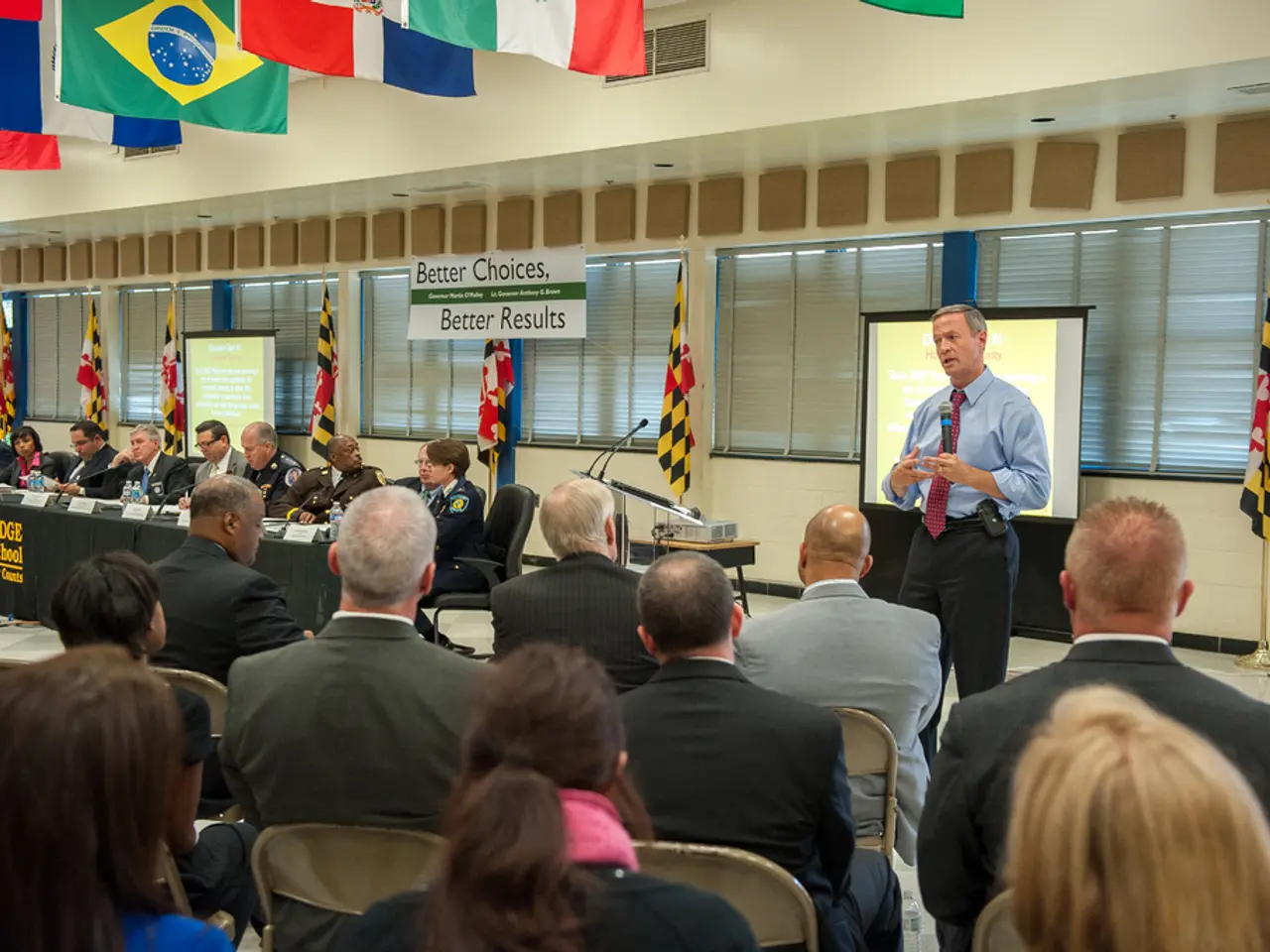Insiders near the Russian government dismiss Donald Trump's warning as unthreatening
In a move that has sparked controversy, US President Donald Trump has ordered the relocation of two nuclear submarines near Russia. This strategic decision, while intended to bolster the US's second-strike nuclear capability, has raised concerns due to its public announcement, breaking decades of strategic silence [1][2][3].
The US nuclear submarines, central to the nuclear triad's deterrence strategy, are typically deployed in international waters near Russia, but their movements are usually undisclosed [2]. The public revelation of their new positions, however, has changed the dynamics, with some viewing it as a calculated signal of resolve, while others caution it may contribute to unintended consequences, including increased risk of conflict escalation [1][3].
The repositioning places these submarines within striking distance of key Russian targets, thereby underpinning the US's second-strike nuclear capability—a crucial deterrent to nuclear conflict. However, the explicit announcement of this move has heightened tensions and concerns about escalating the crisis [1][2][3].
The decision appears to be a response to highly provocative nuclear-related statements by Russia's Dmitry Medvedev, aimed at countering Russian nuclear saber-rattling amid the Ukraine conflict [1][3]. Yet, the move has not been met with demonstrative reactions from the Russian leadership, with neither the Kremlin nor former President Dmitri Medvedev, deputy head of the national security council, publicly commenting on this matter [4].
Political scientists, including Kremlin-linked Sergei Markov, have criticized Trump's actions as "stupid and irresponsible" [5]. Some analysts also suggest that Trump's actions may be an attempt to distract from his internal political problems, including his role in the Jeffrey Epstein sex offender case.
Meanwhile, in the German city of Hamm, the debate over the US submarine relocation is far removed. Here, the focus is on the decline in visitors to the public baths in July, rather than geopolitical tensions [6].
As the world watches, the debate revolves around balancing the necessity of deterrence and strategic signaling against the dangers of overt escalation and destabilization created by breaking nuclear posture secrecy [1][2][3]. There is a call for an agreement between Moscow and Washington to end all talk of a third world war.
[1] https://www.reuters.com/article/us-usa-russia-nuclear-idUSKCN2602JG [2] https://www.bbc.com/news/world-us-canada-55748963 [3] https://www.nytimes.com/2021/07/06/world/europe/us-nuclear-submarines-russia-ukraine.html [4] No specific information provided. [5] https://www.rt.com/op-ed/531411-trump-nuclear-submarines-provocation/ [6] No specific information provided.
The relocation of US nuclear submarines near Russia, often undisclosed due to strategic reasons, has been disclosed publicly, causing concerns among political analysts and scholars over the potential escalation of war-and-conflicts. Concurrently, the announcement has sparked debates in political circles, with discussions centering around the balancing of deterrence and strategic signaling against the dangers of overt escalation and destabilization, specifically in the context of general-news regarding nuclear weapons and international politics.







